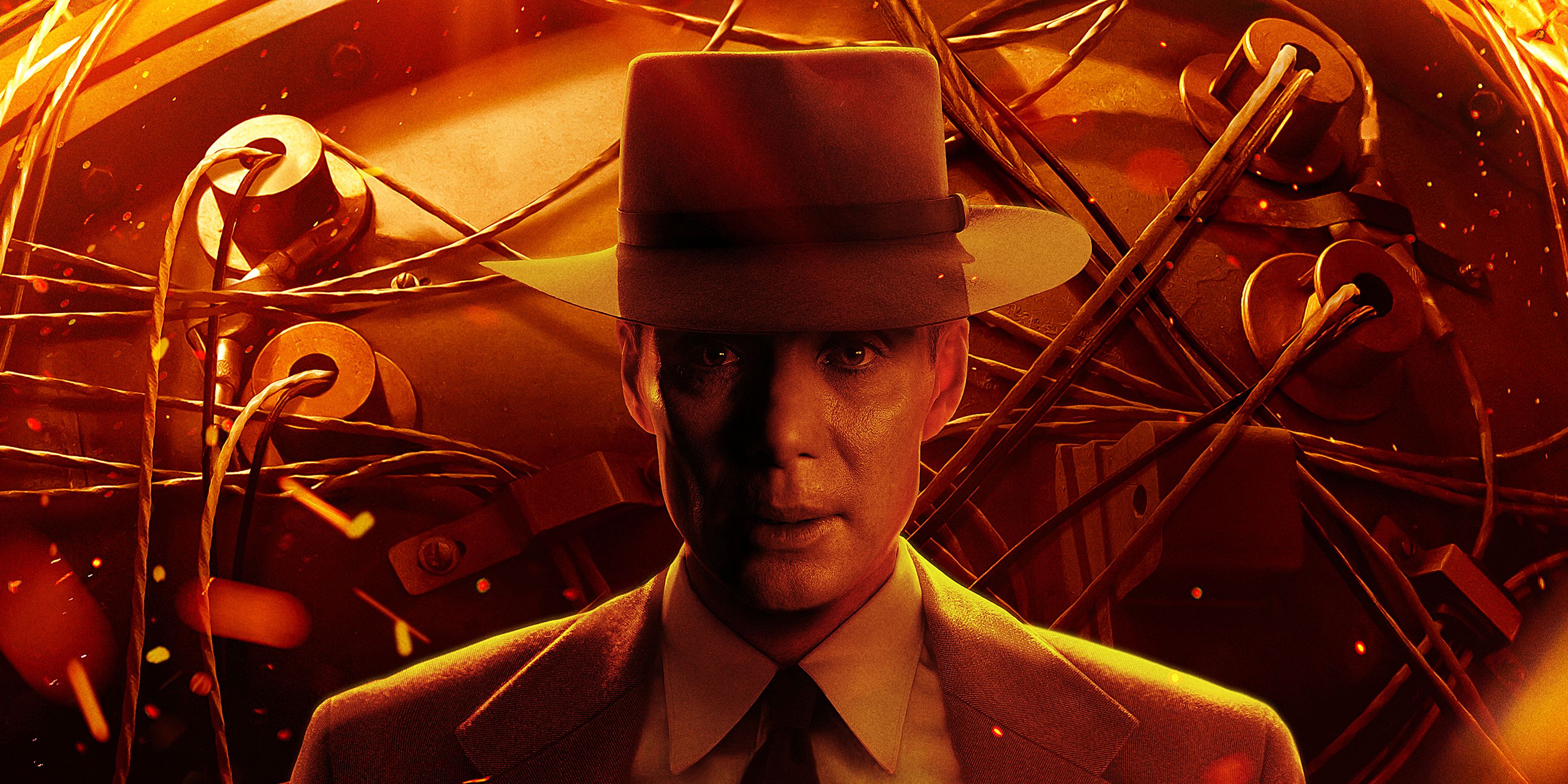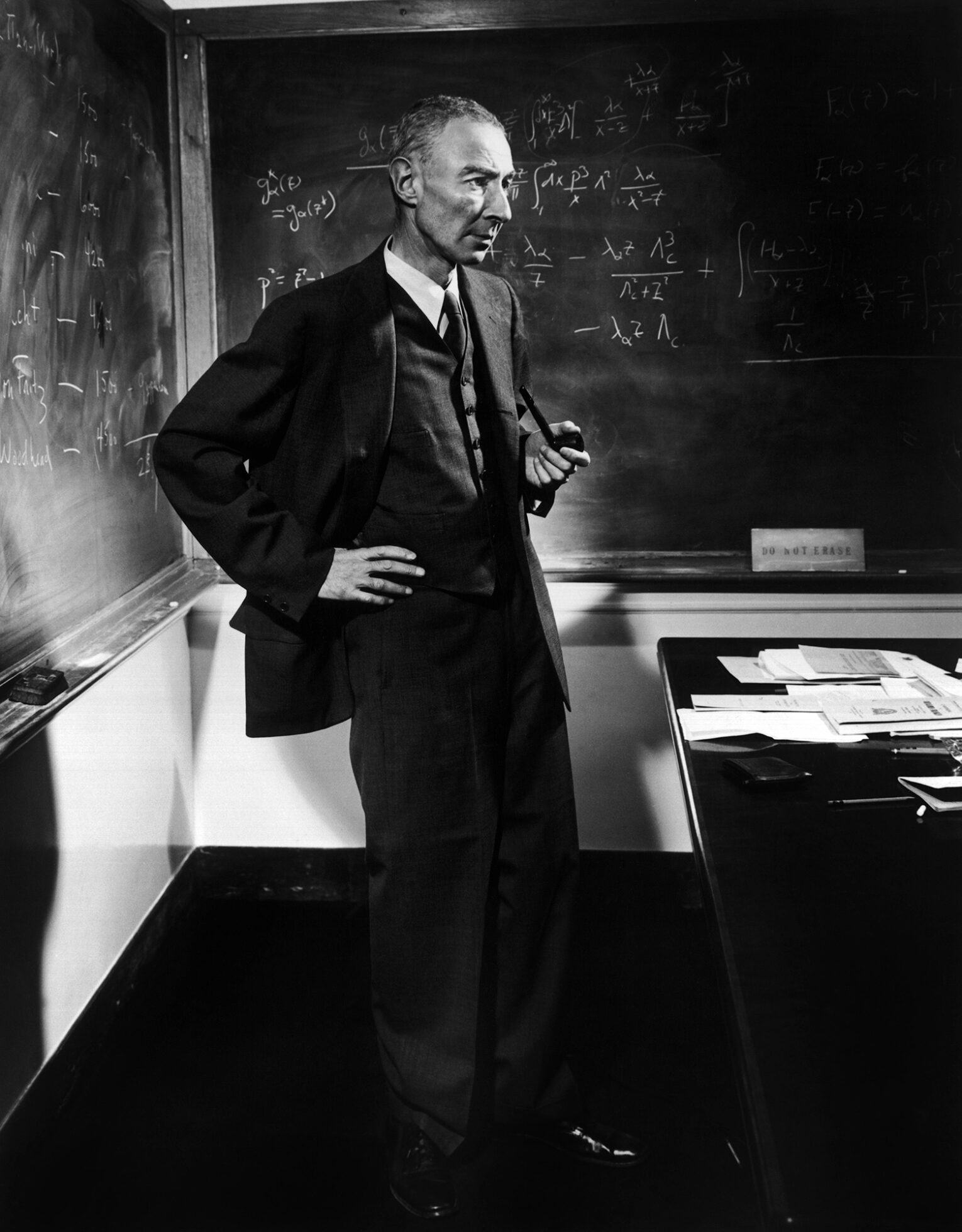So, let's dive into something that might blow your mind today, folks. Julius S. Oppenheimer is one of the most fascinating figures in modern history, and yet, so many people don’t know the full story behind him. Yeah, you might’ve heard about the “Father of the Atomic Bomb,” but there’s a lot more to this guy than just that. His life, his struggles, and his brilliance make for an incredible tale that everyone should hear about. So buckle up because we’re about to take you on a journey through the life of a man who changed the world as we know it.
Now, you’re probably thinking, why should I care about Julius S. Oppenheimer? Well, my friend, this dude didn’t just wake up one day and decide to build a bomb. Nope, there’s a whole lot more to the story. His work, his ideas, and his contributions have shaped the way we understand science, politics, and even humanity. If you’re into history, science, or just plain old human drama, you’re gonna love this ride.
Here’s the deal: we’re not just going to skim the surface. We’re going deep, like really deep, into the life of Julius S. Oppenheimer. From his early years to his controversial role in the Manhattan Project, and everything in between, we’ve got it all covered. So, are you ready to learn about one of the most influential minds of the 20th century? Let’s get started!
- Richard Ramirez Crime Scene Photos A Deep Dive Into The Night Stalkers Dark Legacy
- Why Moviesming Is The Ultimate Destination For Movie Lovers
- 4k Movies Khatrimaza Your Ultimate Guide To Highresolution Entertainment
- Why Desi49info Is The Ultimate Destination For Digital Enthusiasts
- Freemovies2021 Com
Table of Contents
- Biography: The Life and Times of Julius S. Oppenheimer
- Early Years: Where It All Began
- Education: The Making of a Genius
- The Manhattan Project: His Greatest Achievement
- Controversy: The Dark Side of Genius
- Legacy: How He Changed the World
- Personal Life: Beyond the Science
- Impact on Modern Science
- Famous Quotes: Words That Inspire
- Conclusion: The Final Word on Julius S. Oppenheimer
Biography: The Life and Times of Julius S. Oppenheimer
Alright, let’s talk about the man himself. Julius Robert Oppenheimer, often referred to as J. Robert Oppenheimer, was born on April 22, 1904, in New York City. This dude wasn’t just some random guy who stumbled into greatness; nope, he was a bonafide genius from the get-go. Known as the "Father of the Atomic Bomb," Oppenheimer’s contributions to science and his role in World War II have left a lasting impact on the world.
But here’s the thing: there’s more to Oppenheimer than just the bomb. His life was filled with twists and turns, triumphs and tragedies. He was a physicist, a philosopher, and a man who grappled with the moral implications of his own work. Yeah, that’s right—this guy wasn’t just all about the science; he had a deep sense of ethics and responsibility that made him one of the most complex figures of his time.
Early Years: Where It All Began
So, let’s rewind a bit and talk about where it all started for our boy Julius. Growing up in a wealthy family in New York, Oppenheimer was exposed to art, literature, and, of course, science from a young age. His parents, Julius and Ella Oppenheimer, were German Jewish immigrants who made sure their kids got the best education possible. And let me tell you, it paid off big time.
- Pining For Kim By Tailblazer A Deep Dive
- Full4moviesdirectory Your Ultimate Destination For Entertainment
- Sundarikanya New Site
- Top Sophie Rain Photos Videos
- Debate Can Mexicans Say The Nword Context
By the time he was a teenager, Oppenheimer was already showing signs of his genius. He was devouring books on physics, chemistry, and philosophy, and he even wrote papers on mineralogy when he was just 12 years old. Yeah, that’s right—this kid was crushing it before most people even knew what a periodic table was. Talk about a prodigy!
Education: The Making of a Genius
Now, let’s talk about how Oppenheimer became the genius we know today. After graduating from Harvard University in 1925, he went on to study at some of the most prestigious institutions in Europe, including Cambridge and the University of Göttingen. At Göttingen, he earned his Ph.D. in theoretical physics in 1927, and let me tell you, this guy was on fire.
During his time in Europe, Oppenheimer immersed himself in the world of quantum mechanics, a field that was still relatively new at the time. He worked alongside some of the greatest minds in science, including Max Born and Niels Bohr, and his research helped shape the way we understand the universe today. Yeah, that’s right—this dude was basically rewriting the rules of physics, and he was only in his 20s!
The Manhattan Project: His Greatest Achievement
Okay, so here’s where things really get interesting. In 1942, Oppenheimer was appointed the scientific director of the Manhattan Project, the top-secret program that developed the first atomic bomb during World War II. Now, this wasn’t just any job—this was a massive undertaking that required the brightest minds in the world to come together and solve one of the most complex problems of all time.
Under Oppenheimer’s leadership, the team at Los Alamos worked tirelessly to develop the bomb, and in 1945, they succeeded. The first successful test of the atomic bomb, codenamed Trinity, took place on July 16, 1945, in the desert of New Mexico. And let me tell you, it was a moment that changed history forever.
Controversy: The Dark Side of Genius
But here’s the thing: not everything about Oppenheimer’s life was sunshine and rainbows. After the war, he became a controversial figure due to his involvement in the development of nuclear weapons. Some people saw him as a hero who helped end the war, while others criticized him for creating a weapon that could destroy entire cities in an instant.
Things got even more complicated in the 1950s when Oppenheimer was accused of having communist ties. During the McCarthy era, he was stripped of his security clearance and became a symbol of the political paranoia that gripped the nation. Yeah, that’s right—this guy went from being a national hero to a political outcast in the blink of an eye. Talk about a rollercoaster ride!
Legacy: How He Changed the World
So, what’s the lasting legacy of Julius S. Oppenheimer? Well, for starters, he played a crucial role in shaping the modern world. The development of the atomic bomb not only ended World War II but also ushered in the nuclear age, a time when the world had to grapple with the awesome power of nuclear weapons.
But Oppenheimer’s legacy isn’t just about the bomb. He was also a passionate advocate for nuclear disarmament and worked tirelessly to promote peace and understanding in a world that was still reeling from the horrors of war. Yeah, this dude wasn’t just about blowing stuff up—he was about making the world a better place.
Personal Life: Beyond the Science
Now, let’s talk about the man behind the science. Oppenheimer was married to Kitty Harrison, a biologist and political activist, and they had two children together. But here’s the thing: Oppenheimer’s personal life wasn’t always smooth sailing. He struggled with depression and anxiety throughout his life, and his work on the bomb took a toll on his mental health.
Despite these challenges, Oppenheimer remained a deeply philosophical and introspective person. He was known for his love of poetry, literature, and philosophy, and he often quoted works by Shakespeare and the Bhagavad Gita. Yeah, this guy wasn’t just a scientist—he was a Renaissance man who could hold his own in any conversation.
Impact on Modern Science
So, what’s the impact of Oppenheimer’s work on modern science? Well, let me tell you—it’s huge. His contributions to quantum mechanics and nuclear physics have laid the foundation for some of the most important scientific discoveries of our time. From the development of nuclear energy to the study of black holes, Oppenheimer’s work continues to influence scientists around the world.
But here’s the thing: Oppenheimer wasn’t just about the science. He was also a visionary who understood the ethical implications of his work. He believed that scientists had a responsibility to use their knowledge for the betterment of humanity, and he worked tirelessly to promote peace and understanding in a world that was still reeling from the horrors of war.
Famous Quotes: Words That Inspire
Let’s end with some words of wisdom from the man himself. Here are a few famous quotes from Julius S. Oppenheimer that continue to inspire people around the world:
- “Science is not everything, but science is very beautiful.”
- “The atomic bomb made the prospect of future war unendurable.”
- “There must be no barriers for freedom of inquiry. There is no place for dogma in science.”
Yeah, this dude knew how to drop some serious knowledge, and his words continue to resonate with people today.
Conclusion: The Final Word on Julius S. Oppenheimer
So, there you have it, folks—the incredible story of Julius S. Oppenheimer. From his early years as a prodigy to his role in the Manhattan Project and beyond, this guy lived a life that was nothing short of extraordinary. He was a genius, a philosopher, and a man who grappled with the moral implications of his own work.
But here’s the thing: Oppenheimer’s story isn’t just about the past—it’s about the present and the future. His work continues to influence scientists, politicians, and thinkers around the world, and his legacy serves as a reminder of the power and responsibility that comes with scientific discovery.
So, what do you think? Did we do Julius S. Oppenheimer justice? Let us know in the comments below, and don’t forget to share this article with your friends. And hey, if you’re hungry for more history, science, or just plain old human drama, stick around because we’ve got plenty more where this came from. Until next time, stay curious, stay inspired, and keep learning!
- Aditi Mistry Latest Updates Videos News Must See
- Stream Hd Movies2 Your Ultimate Guide To Watching Blockbusters In Stunning Quality
- Hot Desi Videos Clips Explore The Best Now
- Miaz Xxx
- Aagmaal Gives The Ultimate Guide To Understanding This Generous Movement


